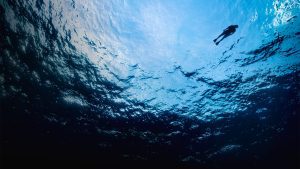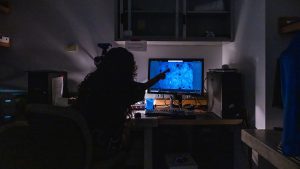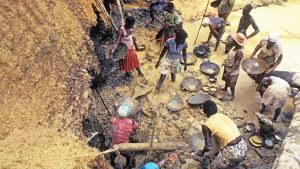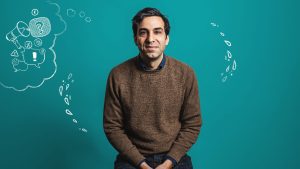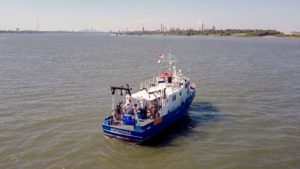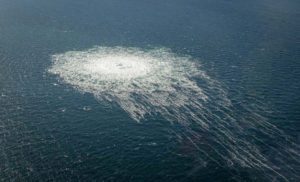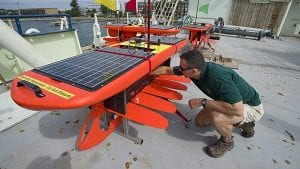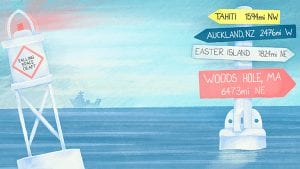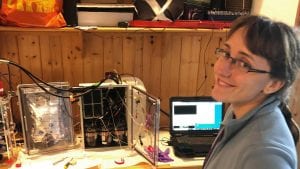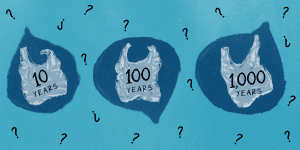Research Highlights
Oceanus Magazine
News Releases
A common algae commercially grown to make fish food holds promise as a source for both biodiesel and jet fuel, according to a new study published in the journal Energy & Fuels.
The researchers, led by Greg O’Neil of Western Washington University and Chris Reddy of Woods Hole Oceanographic Institution, exploited an unusual and untapped class of chemical compounds in the algae to synthesize two different fuel products, in parallel, a from a single algae.
Monitoring efforts along the Pacific Coast of the U.S. and Canada have detected the presence of small amounts of radioactivity from the 2011 Fukushima Dai-ichi Nuclear Power Plant accident 100 miles (150 km) due west of Eureka, California. Scientists at the Woods Hole Oceanographic Institution (WHOI) found the trace amounts of telltale radioactive compounds as part of their ongoing monitoring of natural and human sources of radioactivity in the ocean.
For decades, medical researchers have sought new methods to diagnose how different types of cells and systems in the body are functioning. Now scientists have adapted an emerging biomedical technique to study the vast body of the ocean. In a…
Rapid climate change and an increasing range of climate impacts are already being felt along our coasts, and new research suggests that U.S. Northeast coastal waters may be more vulnerable to climate change and ocean acidification than previously thought. How…
Although the days of odd behavior among hat makers are a thing of the past, the dangers mercury poses to humans and the environment persist today. Mercury is a naturally occurring element as well as a by-product of such distinctly…

